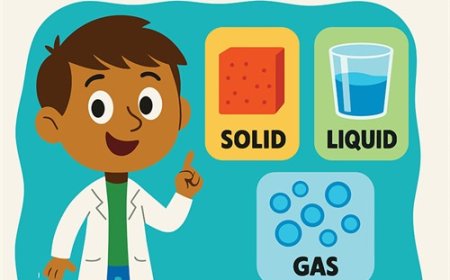The Scientific Method Explained for Students
Learn the steps of the scientific method with clear examples Discover why it is important for experiments and everyday problem solving
🌟 Introduction
The scientific method is the way scientists ask questions and find answers. It is like a recipe for discovery, helping us solve problems by following clear steps. Scientists use it to test ideas about the world, but students and even everyday people can use it too.
When you wonder why the sky is blue, how a plant grows, or why a ball bounces differently on grass and concrete, you are starting the first step of the scientific method-asking a question. This process helps us explore the unknown, organize our thinking, and discover the truth through observation and testing.
🔍 What is it?
The scientific method is a step-by-step process used to investigate questions and test ideas. The main steps usually include:
-
Ask a Question - Be curious and form a question about something you notice.
-
Do Research - Learn what is already known about the topic.
-
Form a Hypothesis - Make an educated guess that can be tested.
-
Test with an Experiment - Gather evidence through careful testing.
-
Analyze Data - Look at the results to see if they support your hypothesis.
-
Draw a Conclusion - Decide what the results mean.
-
Share Results - Communicate what you discovered so others can learn too.
This process can repeat again and again, improving our understanding each time.
🌍 Why is it important?
The scientific method is important because it gives us a fair, organized, and repeatable way to learn about the world. Without it, ideas might be based only on guesses or opinions. By testing and retesting, scientists can separate fact from opinion and find reliable answers.
It is also important outside the science lab. Doctors use it to test medicines, engineers use it to design safer bridges, and teachers use it to figure out which learning methods work best for students. Even in everyday life-like testing which soap makes the biggest bubbles-you're using the scientific method.
🧪 Everyday Examples
-
Baking Cookies: If your cookies turn out flat, you might ask, "What happens if I add more flour?" You form a hypothesis, test it by baking, and compare results.
-
Growing Plants: Students often test whether plants grow better in sunlight or shade. They observe, measure, and record growth to reach a conclusion.
-
Paper Airplanes: Kids ask, "Will a longer wing make it fly farther?" They fold different styles, test them, and compare distances.
-
Cleaning Test: Families may wonder which cleaner works best. They test one spot with vinegar and another with soap, then compare results.
These simple examples show that the scientific method is not just for scientists-it's for anyone who wants to solve a problem carefully.
✨ Fun Facts
-
Galileo Galilei was one of the first scientists to use experiments to test ideas.
-
Thomas Edison tested thousands of materials before finding the best filament for the light bulb.
-
The word "hypothesis" comes from Greek, meaning "underlying idea."
📌 Key Takeaways
-
The scientific method is a step-by-step way to ask and answer questions.
-
It helps separate facts from opinions through testing.
-
Everyday people use it, not just scientists.
-
The steps often repeat to build stronger evidence.
🐾 Kid-Friendly Summary
The scientific method is like a detective's tool for science. You start with a question, make a guess, test it, and see what happens. It helps everyone-scientists, kids, and even families at home-learn the truth in a fair way.
📚 Vocabulary Words
-
Scientific Method - A step-by-step process to ask questions and find answers
-
Hypothesis - An educated guess that can be tested
-
Experiment - A test to find out if a hypothesis is correct
-
Observation - Watching and noticing details carefully
-
Data - Information or measurements collected during an experiment
-
Conclusion - A decision based on the results of an experiment
-
Variable - A factor that can change in an experiment
🧠 Interactive Quiz
-
What is the first step of the scientific method?
- A. Form a hypothesis
- B. Ask a question
- C. Do an experiment
- D. Share results
-
What is a hypothesis?
- A. A proven fact
- B. An observation
- C. An educated guess
- D. A conclusion
-
Why is the scientific method important?
- A. It is faster than guessing
- B. It helps test ideas fairly
- C. It always proves you are right
- D. It only works for scientists




















































